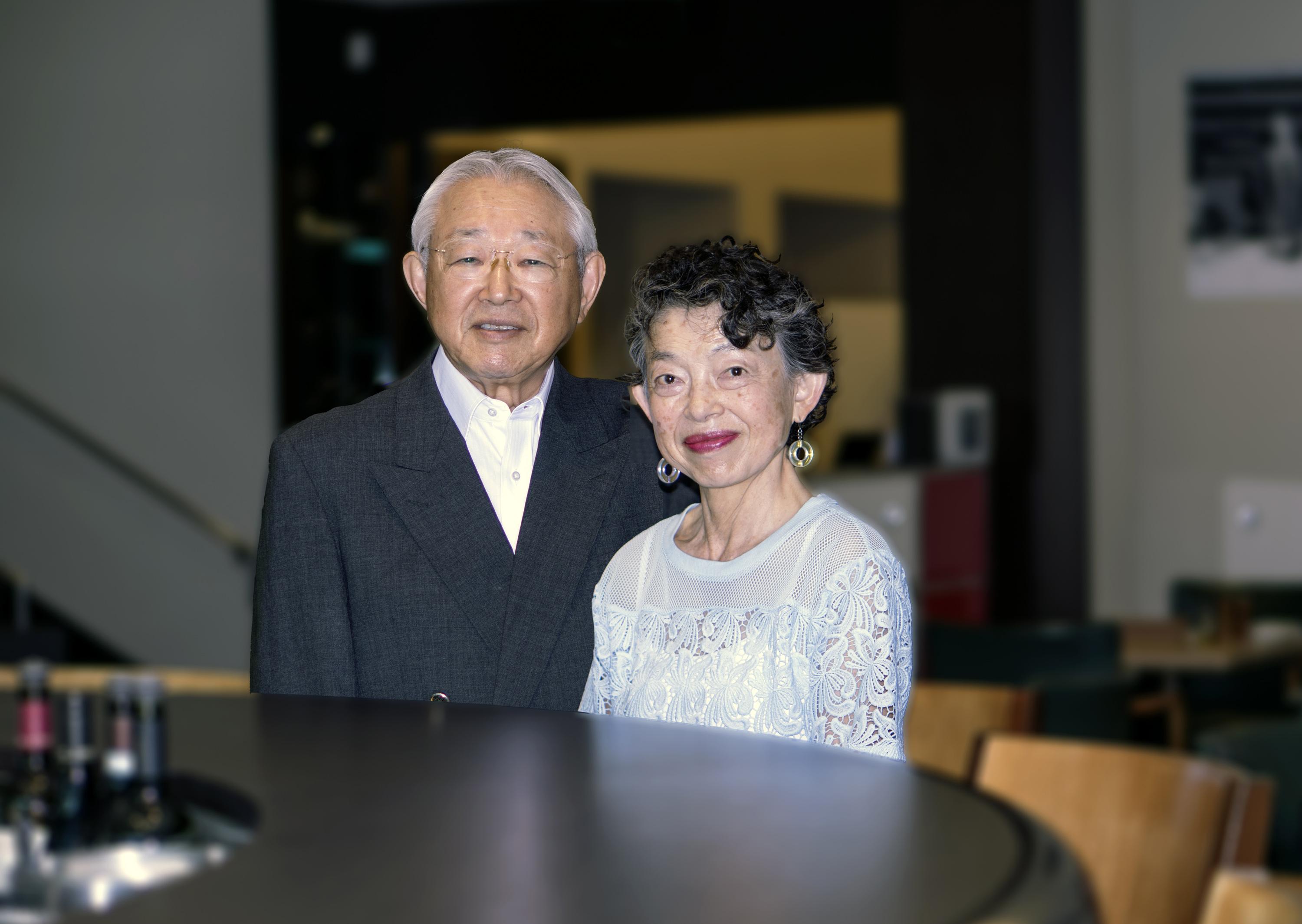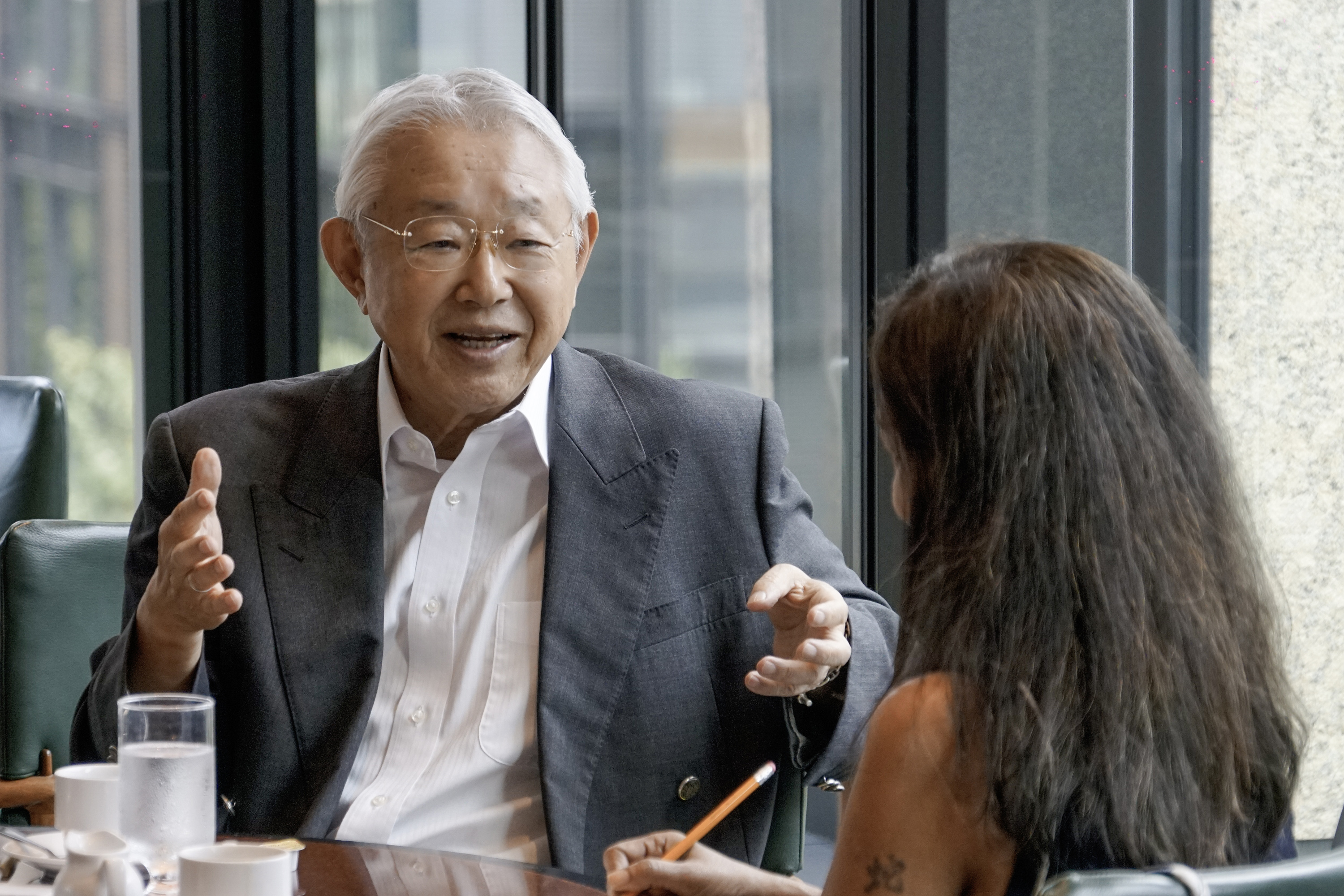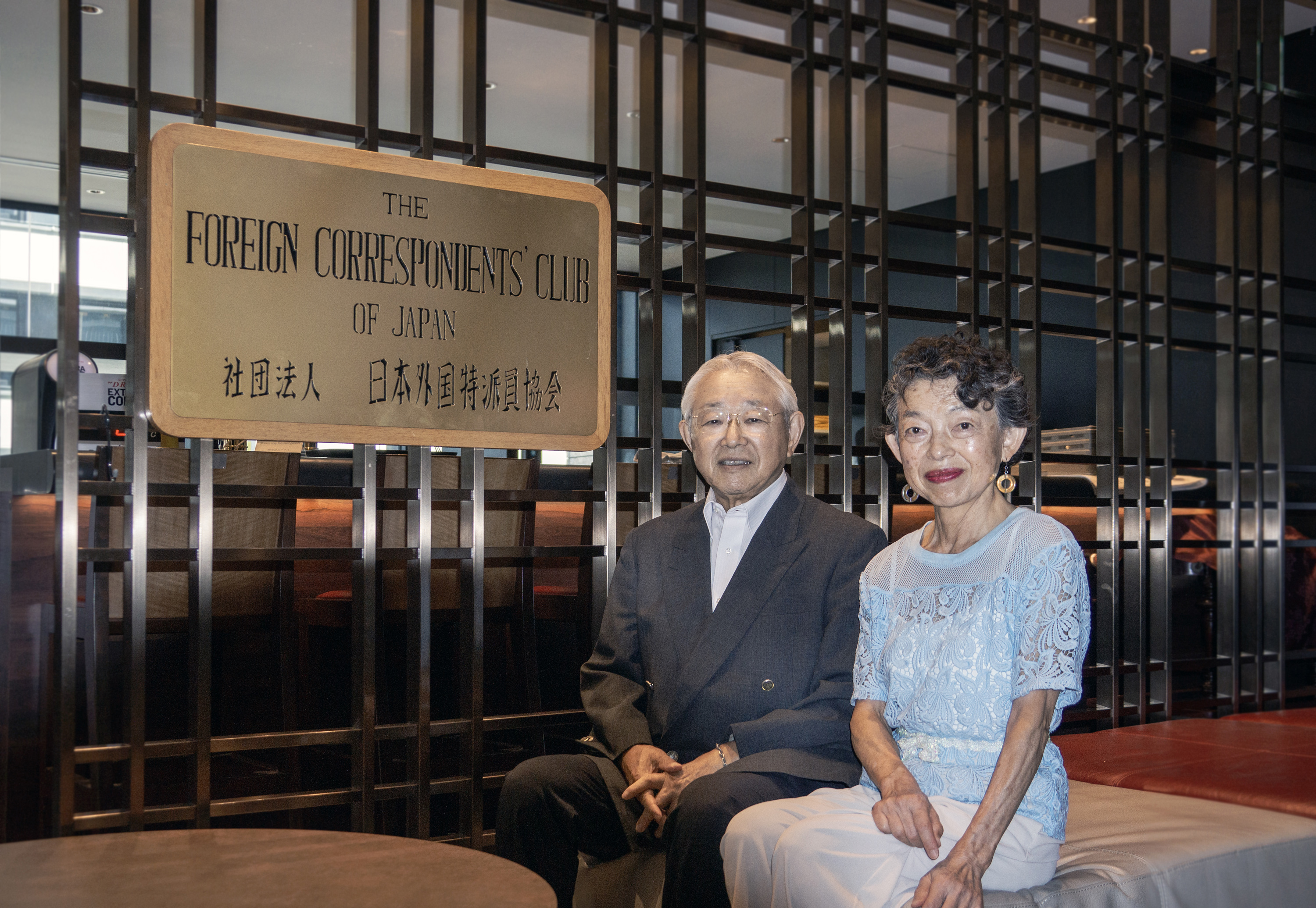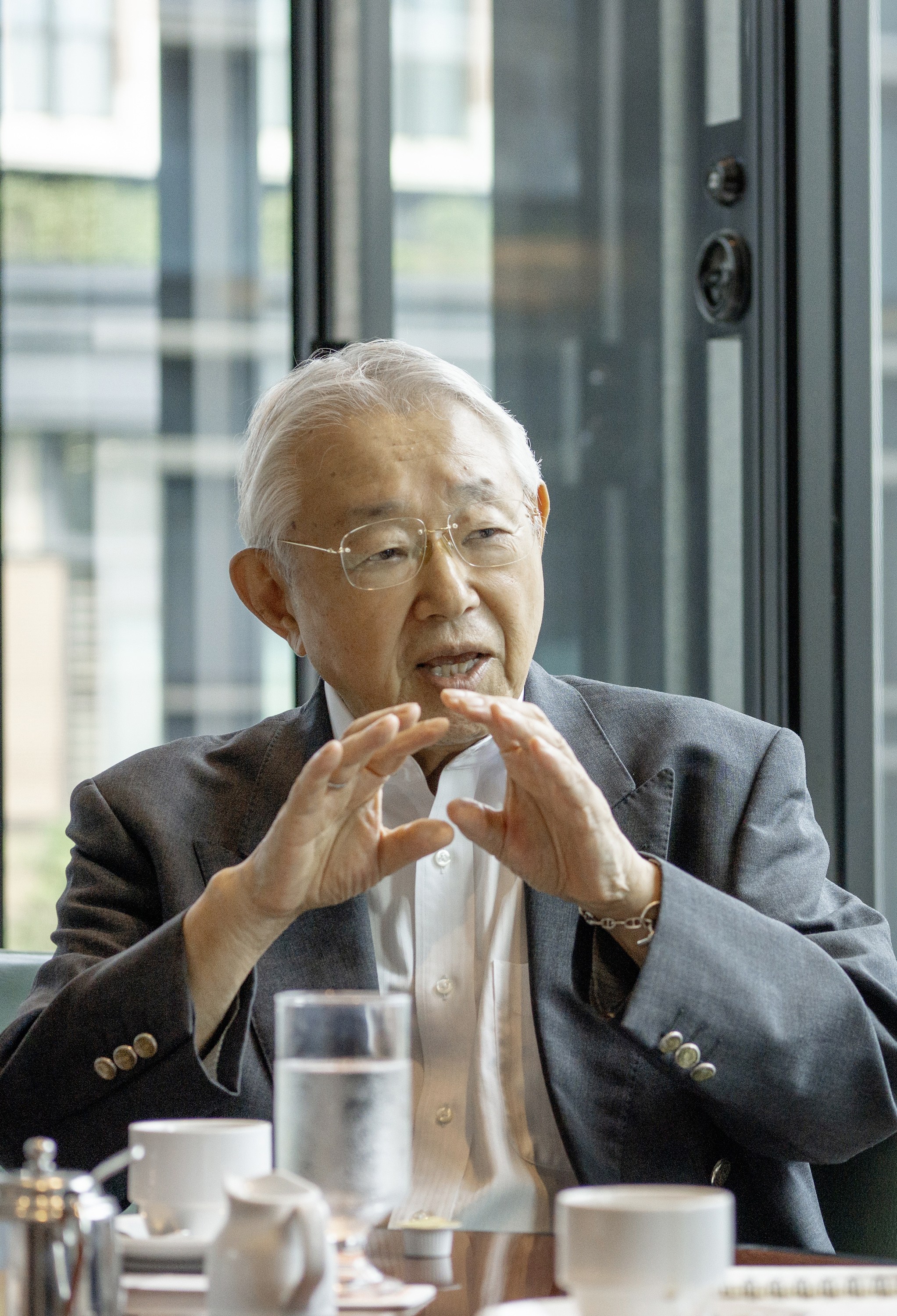Issue:
October 2025 | Ask an Associate
Japan needn’t panic over Trump’s tariff wars, says former trade negotiator and FCCJ associate member Tad Sano

Tadakatsu “Tad” Sano and his wife, Momoko, joined the FCCJ almost 20 years ago after spending a long period in Europe, where Tad had worked as a Japanese government official.
“We were looking for a club that could offer what we had experienced abroad,” Momoko, a spouse member of the FCCJ, said in an interview with the Number 1 Shimbun.
The couple lived in several countries, their lives filled with conversations with an eclectic range of friends, guest and colleagues. The FCCJ, then located in Yurakucho, seemed an appropriate choice. Tad had already visited the club with colleagues at the Ministry of International Trade and Industry – as it was known until 2001 – who told him it was an ideal place to hear opinions that differed from those in the Japanese media. “The FCCJ, therefore, plays an important role for Japanese people,” he said.

Momoko, who helped troubled families as a volunteer for family court, is an avid user of the FCCJ library, and can be seen with friends in the restaurant, where, she says, the friendly staff and relaxed atmosphere are particularly attractive for people who work alone.
Tad, meanwhile, regular attends press conferences online. “Associate members do not usually ask questions at the FCCJ,” he said. “So, the present online format is comfortable for me to keep in touch with the foreign media.”
With a long career as a senior bureaucrat, Tad was keen to share his thoughts on the ongoing trade talks between Japan and the U.S., and recalled his own involvement in trade issues as part of several Japanese negotiating teams. That was back in the 1980s, when Japan’s huge trade surplus with the U.S. caused friction between Washington and Tokyo.
A graduate of law from Kyoto University, Tad is former director-general of METI’s Trade Policy Bureau and former vice minister for international affairs. He completed economic partnership agreements with Mexico and Singapore. He recalled the European Council’s request in the early 1980s that Japan extend voluntary export restraints on sensitive items, adding video recorders, light commercial vehicles, motorcycles, and other items to the list. “I was dealing constantly with these issues that required the Japan side to beat down the threat of high tariffs on its goods,” he said.
The former negotiator said it was important to bear in mind cultural differences, and cited Donald Trump’s frequent use of the word “unfair” to justify his imposition of higher tariffs on Japanese goods.

“The Japanese equate the use of the word ‘unfair’ to someone committing a sin,” he said. “Obviously, this is not the same in the American context.” While “unfair” is rarely used in Japan because it implies unconditional harm, in the U.S. it is commonly used to apply pressure, for example during negotiations. That difference "must be taken into close consideration when negotiating between two difference countries”, he said,
He added that having a clear grasp of the political pressures on individual governments was vital. “We were very aware that foreign bureaucrats across the table were representing their governments that were dependent on domestic lobbyists,” he said. Japan's strategy, he added, has always been to exercise patience. “The stance taken by Tokyo was to convince the other side to agree that trade disputes between two countries should be solved multilaterally. We relied on international organizations such as the World Trade Organization, to hear both sides.”
Yet Tad acknowledged that that strategy was no longer viable now that Trump is back in the White House and amid the resulting breakdown of the postwar Bretton Woods order governing monetary relations between countries. Japan finds itself in a situation in which it is negotiating directly with the Trump administration, while international trade bodies have been sidelined. Now, he said, negotiations are dictated by power politics.

He sees the decline in American power as the catalyst for the emergence of Trump’s MAGA movement, amid the rise of China and the growing influence of the global south. “Negotiations against this tumultuous global backdrop is a dilemma for Japan,” he said.
“While economically strong, Japan as a small nation needs to watch the trends carefully and be a responsible member of the international community.”
Despite the challenges, he is optimistic countries will continue to prioritize industrial and economic growth, adding that the fundamentals of globalization remain strong.
“This is where I see the current US tariff strategy fizzling out without much punch,” he said pointing out that leading Japanese corporations operate with foreign chief executives, have a global presence, and trade in US dollars.
“Recall 500 years ago, and then think ahead 500 years from now, when the world will be shaped by uncontrolled mobility across borders,” he said. “Slapping tariffs against the inevitable is meaningless when taken in context.”
Suvendrini Kakuchi is Tokyo correspondent for University World News in the UK.

